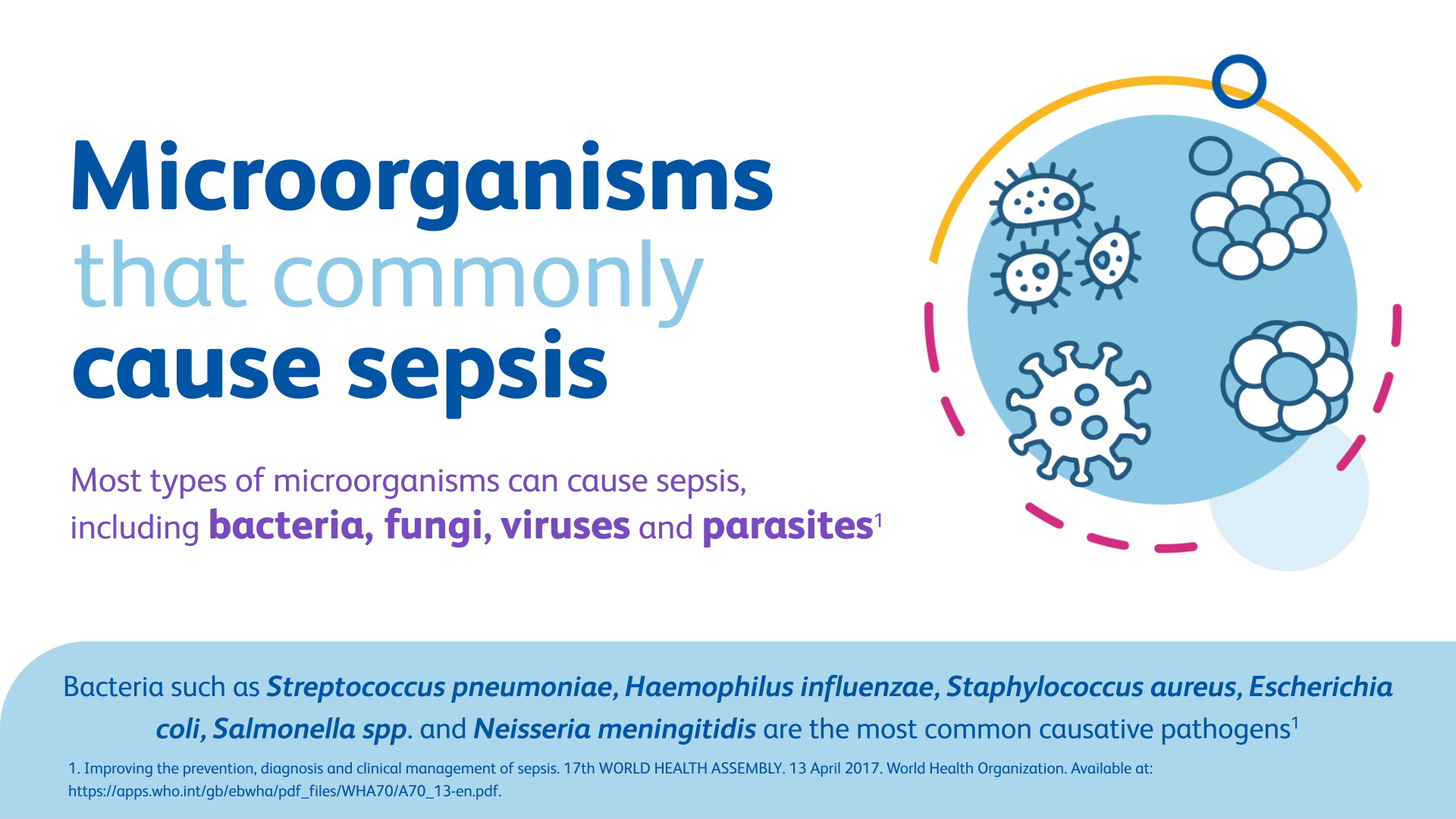If left untreated a bloodstream infection can lead to more serious. However over the past 25 years it has been shown that gram-positive bacteria are the most common cause of sepsis.
 Human Innate Immunity And Survival Mechanisms Of Sepsis Causing Bacteria Download Scientific Diagram
Human Innate Immunity And Survival Mechanisms Of Sepsis Causing Bacteria Download Scientific Diagram
Many types of microbes can cause sepsis including bacteria fungi and viruses.

What bacteria causes sepsis. Pyogenes Klebsiella spp Escherichia coli E. It can begin anywhere bacteria parasites fungi or viruses enter your body even something as small as a hangnail. An infection of the bone called osteomyelitis could lead to sepsis.
Sepsis has recently been re-defined as life-threatening organ dysfunction caused by a dysregulated host response to infection. Some of the most frequently isolated bacteria in sepsis are Staphylococcus aureus S. Sepsis as a medical condition was fir.
Pseudomonas aeruginosa bacteria which can cause gram-negative sepsis. Bacterial sepsis is a life-threatening condition that arises when the bodys response to an infection injures its tissues and organs. Bacteria cause sepsis The Content is not intended to be a substitute for professional medical advice diagnosis or treatment.
Sepsis happens when txt icon TXT 1 1 KB. Sepsis happens when image icon. Aureus Streptococcus pyogenes S.
Always seek the advice of your physician or other qualified health provider with any questions you may have regarding a medical condition. However bacteria are the most common cause. Sepsis can also be a result of other infections including viral infections such as COVID-19 or influenza.
Sepsis occurs unpredictably and can progress rapidly. This article provides an overview of sepsis including stages diagnosis and treatment. Bacterial infections cause most cases of sepsis.
The source of the infection can be any of a number of places throughout the body. Other etiologies can include meningitis head and neck infections deep neck space infections pyelonephritis renal abscess intrarenal or. Bacterial infections are the most common cause of sepsis.
Are readmitted to the hospital. However an infection can lead to sepsis and you can spread some infections to other people. Any infection can trigger sepsis but the following types of infections are more likely to cause sepsis.
One of the possible complications of severe pneumonia is sepsis which is a life-threatening condition. Those with underlying chronic diseases antibiotic pretreatment as well as those who are hospitalized for a prolonged period of time have an increased risk of developing sepsis. Coli and Pseudomonas aeruginosa P.
Common sites and types of infection that can lead to sepsis include. Sepsis is a life-threatening systemic response to an infection. Severe cases of sepsis often result from a body-wide infection that spreads through the bloodstream.
However when an infection is established within the bloodstream this type of bacteremia is differentiated as septicemia. Sepsis can also be caused by fungal parasitic or viral infections. People who have certain conditions are at greater risk of developing Gram-negative sepsis including those who have low levels of immunity and those with traumatic injuries such as burns.